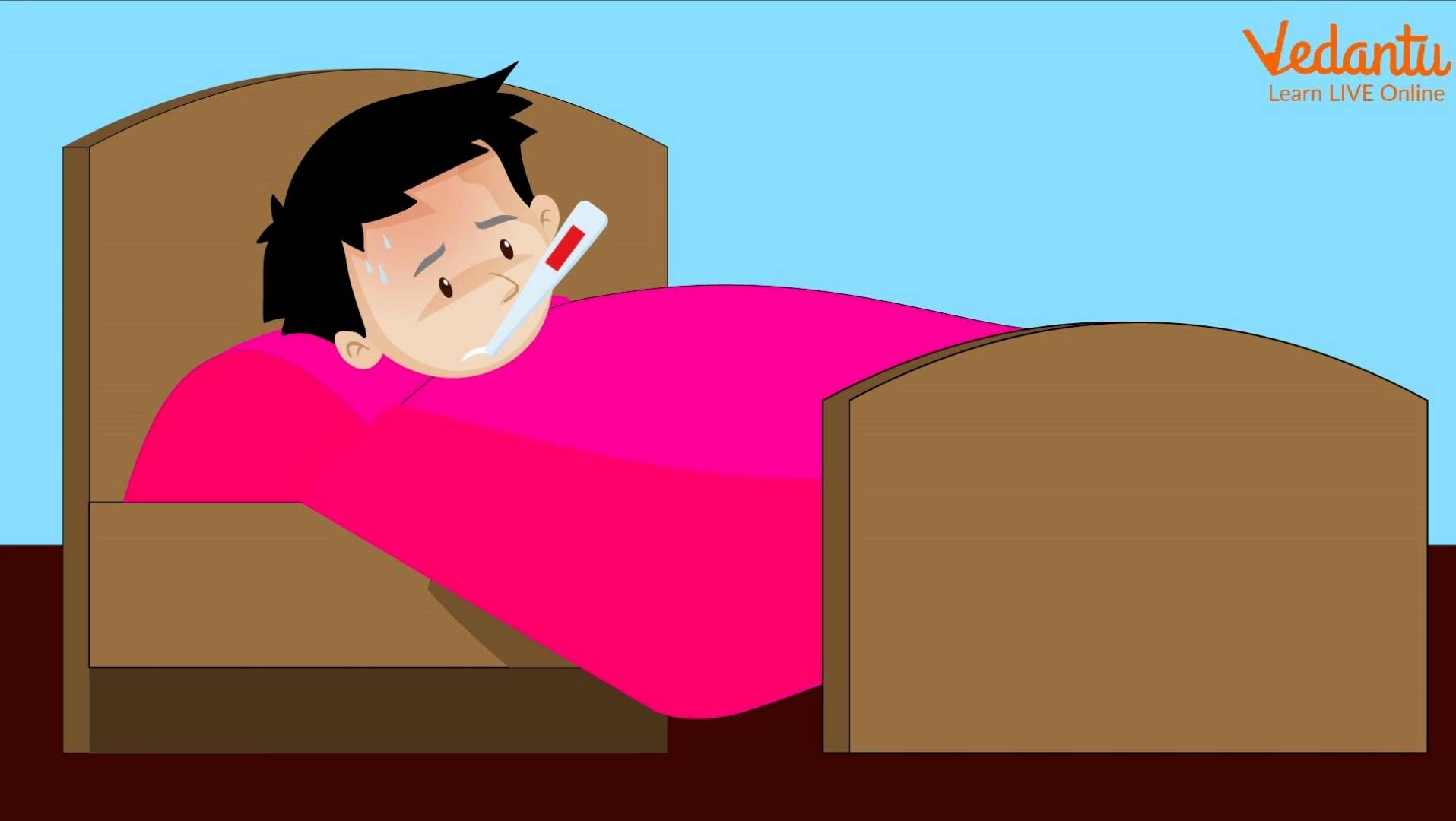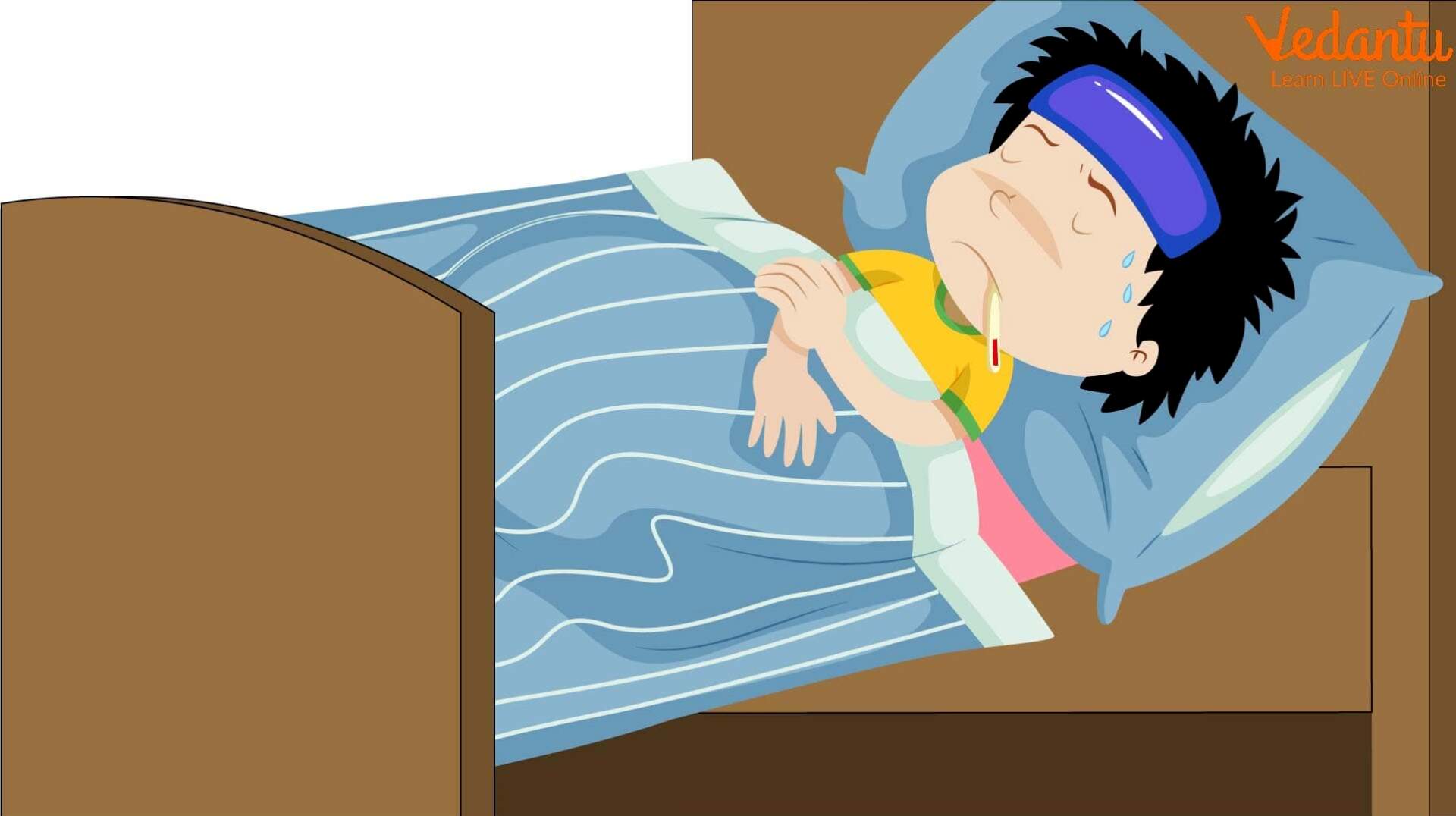Fever, Fever Go Away: Never Come Again Another Day
Fever is a temporary rise in body temperature. It is an overall response from the body’s immune system. Infections and viruses are mainly responsible for fever. However, fever is not only a mere rise in body temperature. Many times, fever is also a sign of weakness or other diseases. In fact, most diseases start with fever as a basic symptom. So, now the question is- how do we get a fever?
For most people (children and adults), fever feels uncomfortable but is not usually a cause of concern. However, even a low fever must not be looked over for infants.
Symptoms of Fever
Human body temperature is not the same for all. It varies from person to person. An average temperature is usually 98.6 F. When one’s body temperature is higher than that, it is a symptom of Fever. Check if you feel like
Sweating
Loss of appetite
Chills and Shivering
Headache
Irritability
Muscle aches
Dehydration
General weakness
Nausea
Rash
Feeling light-headed
Checking Temperature
Choose any thermometer like oral, ear, rectal, or forehead thermometers to check the temperature. The most used ones are oral and rectal thermometers. They are known to provide the most accurate temperature measurements. Sometimes, the rectal thermometer is used for infants for actual results. When you report a body temperature to your doctor, give both reading and the thermometer used in measuring temperature.

How Do We Get Fever?
When to Go to a Doctor?
Fevers can initially be treated at home. Consult a doctor if necessary. For infants and toddlers, call a child specialist if your kid is younger than 3 months old and has a rectal temperature of 100.4 F or more. When a child is 3 to 6 months old and has a rectal temperature of more than 102 F, take them to a doctor. Take extra care if the body temperature is irritable, sluggish, and uncomfortable.
For children between 7 to 24 months of age, take them to a health care centre if their body temperature is more than 102 F. It is a matter of concern if that lasts longer than a day without symptoms.
There is no such cause of alarm if children have a fever but are responsive. Take them to the doctor when they are confused, listless, and have poor eye contact with you. If they are irritable, vomit frequently, has a severe headache, and have stomach pain- they need medical advice. An immediate change of temperature of surroundings can cause a person of any age to have a fever. Do not neglect or take it casually when a fever or similar feeling lasts more than 3 days. A seizure associated with Fever is a sign you need medical consultation.

How Do We Get Fever?
Why Do We Get Fever?
Your typical body temperature is a balance of heat production and loss. The hypothalamus area of the human brain monitors the balance of body temperature. As a result, your body temperature slightly varies throughout the day, even when you are fine. It is usually lower in the morning and higher in the late afternoon or evening.
Fever is caused when one’s immune system responds to disease. Hypothalamus is responsible for setting the body temperature higher. That is a complex process that produces more heat and prevents heat loss. When you shiver, you might experience one-way production of body heat. When you wrap up in a blanket because you feel cold, you help your body retain heat.
Fever below 104 F is usually caused because of viral infections. Your immune system fights against the disease; thus, a body temperature below 104 F is not generally harmful. Some reasons for elevated body temperature and what causes fever are:
Bacterial Infection
Viral infection
Excessive heat exhaustion
Malignant tumour
Inflammatory conditions like rheumatoid arthritis
Immunisation like diphtheria, acellular pertussis, and tetanus.
How Can I Get Fever Treatment Associated with Cold or Flu?
Treatment of Fever depends on several factors besides how severe it feels. Often with low-grade fevers, treatment increases comfort and reduces flu-influenced fever symptoms. Acetaminophen is a medicine that helps with fevers. To get rid of Fever, follow the below steps:
Check your temperature and assess the symptoms.
A body temperature higher than 100.4 F or more is considered a fever.
Stay in bed and take a rest.
Keep your body warm and hydrated. Drink water, tea, warm milk, etc.
Consult a doctor and take recommended medicines.
No need to put on an extra layer of clothing and blanket unless you have chills.
Take only tepid baths or use cold compresses to feel comfortable.
Keep in touch with a medical advisor till you get entirely well.
Catching a fever is our body’s response to fight against infections caused due to bacteria and viruses. Fevers are also caused due to sunburn or immunisation. People with weaker immune systems tend to get a fever more than others.
Some Common Types of Fever
Fever is one of the most common health ailments we experience from time to time. Fever is also known as controlled hyperthermia or pyrexia. In this medical condition, you are recognised as a patient. Various types of fever can make you uncomfortable. Though minor ailments can be treated easily with medicines, a patient with Fever can also seek serious medical attention. Let’s discuss the types of fever commonly found in India.
Intermittent Fever
Intermittent Fever is typically a condition when body temperature remains near 37°C in day time but rises at night. Experts say that this happens due to parasitic or bacterial infections. Malaria and septicemia are 2 classic examples of diseases caused by intermittent Fever.
Sudden High Fever
Just as the name suggests, the medical condition is identified with a sudden increase in body temperature. For example, sudden high fever causes tiredness, body ache, fatigue along with headache. Dengue fever, caused by sure mosquito bites, often comes with a sudden high fever.
Continuous Fever
It is a medical condition when body temperature remains above the nominal levels round the clock. The temperature does not fluctuate more than 1° C. A health condition like this is usually caused by bacteria and is associated with other health concerns. The health concerns include pneumonia, typhoid fever, and urinary tract infection.
Rheumatic Fever
Streptococcal bacteria cause rheumatic Fever. Most medical experts stated that initially, the bacteria cause throat infection. Then, the infection can lead to painful fevers. Some notable symptoms of Rheumatic Fever are inflammation, headache, and white spots on the tonsils and tongue.
Remittent Fever
This fever has many similarities to continuous fever. In both cases, body temperature remains high over the day. However, unlike persistent fever, the temperature can fluctuate by more than 1° C in this condition. This results from bacterial infections like brucellosis or a medical disease known as infective endocarditis.
Conclusion
Fever is an important common health concern. It may happen once in a while but if your body has a weak immune system., it can happen more often. However, one should not be worried about fever since it is a harmless body condition. The worst a person can face during fever is weakness. But be careful since fever can be a symptom of other diseases. Almost all diseases start with a fever. So, take complete care when you have caught a fever.







